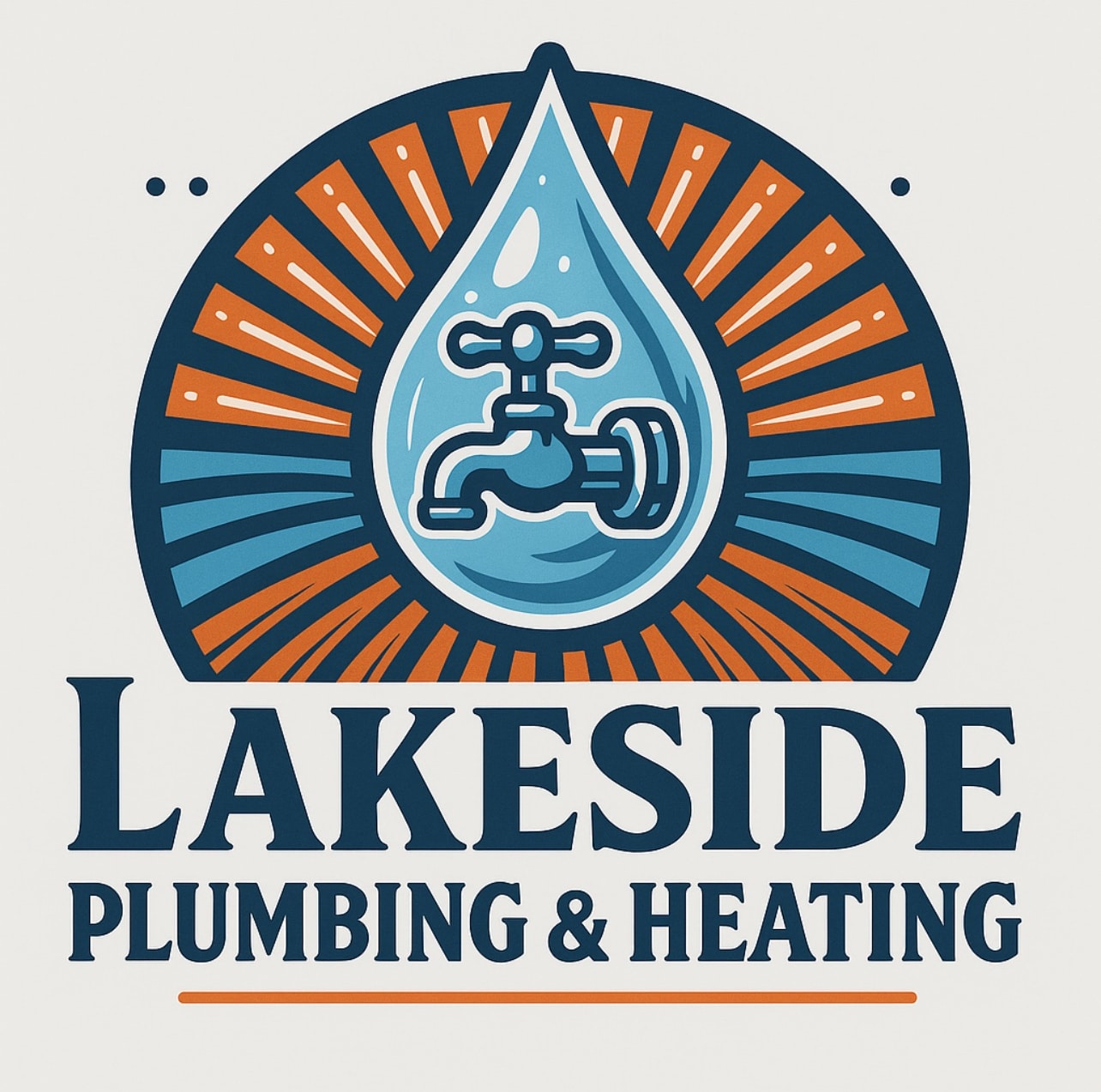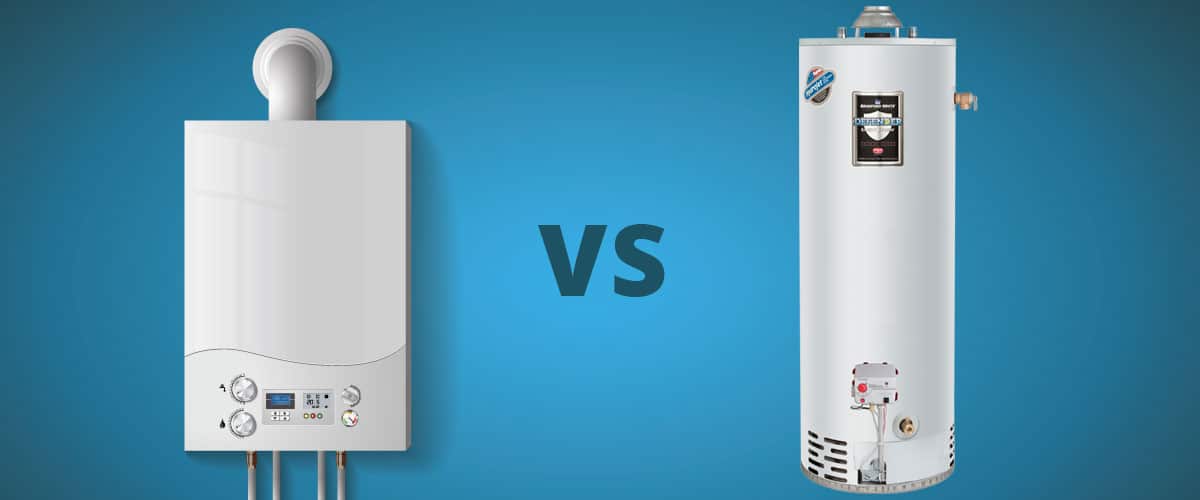Table of Contents
- Introduction
- What Is a Tank Water Heater?
- What Is a Tankless Water Heater?
- Key Differences Between Tank and Tankless
- Pros and Cons of Tank Water Heaters
- Pros and Cons of Tankless Water Heaters
- What Type Is Best for Massachusetts Homes?
- Energy Efficiency and Savings
- Installation and Maintenance Considerations
- How Lakeside Plumbing Can Help
- Conclusion
1. Introduction
Choosing the right water heater is a big decision for homeowners in Massachusetts. Between the cold winters, varying household sizes, and energy costs, selecting the most efficient and cost-effective system can save you thousands over time.
The most common question we get at Lakeside Plumbing: Should I get a tank or tankless water heater? In this guide, we’ll break down the pros, cons, and ideal use cases for both, so you can decide what’s best for your home.
2. What Is a Tank Water Heater?
Tank water heaters are traditional systems that store and heat a large volume of water in a tank—usually 40 to 80 gallons. Water is kept hot 24/7, ready for use.
Key Features:
- Constantly stores and reheats water
- Heats water using electricity, natural gas, or oil
- Lower upfront cost
These units are common in older homes and are still widely used throughout Central Massachusetts and Greater Boston.
3. What Is a Tankless Water Heater?
Tankless water heaters, also known as on-demand heaters, heat water only when you need it. Water flows through a heating element as you use it, eliminating the need for a storage tank.
Key Features:
- Heats water on demand
- Compact and wall-mounted
- Powered by gas or electric heating elements
- Higher upfront cost, lower operating cost
They are quickly gaining popularity for their energy efficiency and space-saving design.
4. Key Differences Between Tank and Tankless
| Feature | Tank Heater | Tankless Heater |
|---|---|---|
| Heating Method | Stored hot water | On-demand heating |
| Size | Large, bulky tank | Compact, wall-mounted |
| Energy Efficiency | Lower | Higher |
| Lifespan | 10-15 years | 15-20+ years |
| Upfront Cost | Lower | Higher |
| Installation Complexity | Simple | More complex |
| Hot Water Supply | Limited (runs out) | Unlimited (if sized correctly) |
5. Pros and Cons of Tank Water Heaters
Pros:
- Lower upfront cost
- Simple installation
- Works well for small to medium households
Cons:
- Higher energy bills (constant heating)
- Takes up more space
- Runs out of hot water with extended use
- Shorter lifespan compared to tankless
6. Pros and Cons of Tankless Water Heaters
Pros:
- Energy-efficient (only heats water when needed)
- Unlimited hot water supply
- Space-saving design
- Longer lifespan
Cons:
- Higher initial cost
- Installation can require upgrades (venting, gas line)
- May need multiple units for larger homes
7. What Type Is Best for Massachusetts Homes?
Tank Heaters Are Best If:
- You have a smaller household
- Budget is limited
- You have existing tank setup with no need for upgrades
Tankless Heaters Are Best If:
- You want to reduce energy bills
- You plan to stay in your home long-term
- You value space savings and modern upgrades
- You want unlimited hot water during long showers or high usage periods
In colder climates like Massachusetts, tankless systems must be sized properly to handle winter water temperatures. At Lakeside Plumbing, we perform custom sizing to ensure your unit works year-round.
8. Energy Efficiency and Savings
Tankless water heaters can reduce energy use by up to 34% compared to traditional tank heaters—especially in homes that use less than 40 gallons of hot water daily.
Additionally:
- Tank heaters continuously use energy to keep water warm, even when not in use.
- Tankless systems only operate when hot water is demanded, saving both electricity and gas.
Over time, a tankless heater may offset its higher installation cost through reduced utility bills.
9. Installation and Maintenance Considerations
Installation
- Tank units are faster and more affordable to install.
- Tankless units often require upgraded venting, gas lines, or electrical work.
Maintenance
- Tank water heaters should be flushed annually to remove sediment.
- Tankless systems also need annual flushing, especially in areas with hard water (like much of Central Mass).
Lakeside Plumbing offers annual maintenance plans for both types to extend the life of your system.
10. How Lakeside Plumbing Can Help
Choosing the best water heater isn’t one-size-fits-all. That’s why Lakeside Plumbing offers:
- Free consultations to determine your home’s needs
- Expert installation of both tank and tankless systems
- Top brands like Navien, Rheem, and AO Smith
- Service across Central Massachusetts and Greater Boston
We also handle any permitting, plumbing code requirements, and venting upgrades needed for tankless systems.
11. Conclusion
When it comes to choosing between tank and tankless water heaters in Massachusetts, it all comes down to your home, budget, and lifestyle. Tank heaters are affordable and simple. Tankless heaters offer long-term savings, endless hot water, and modern efficiency.
Still unsure which one is right for you?
Call Lakeside Plumbing at (508) 902-8177 or email [email protected] to speak with a licensed plumber who can guide you through the process.
Let us help you choose the best water heater for your New England home.


0 Comments